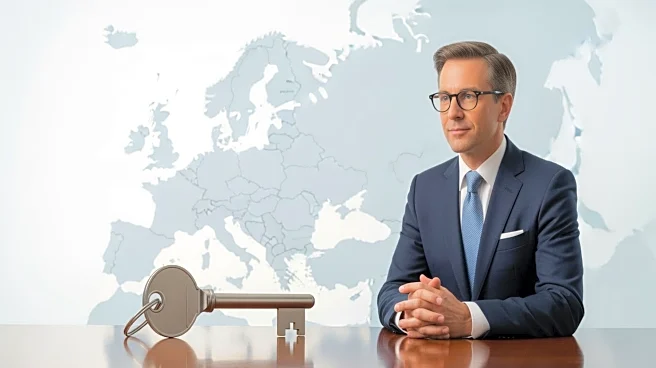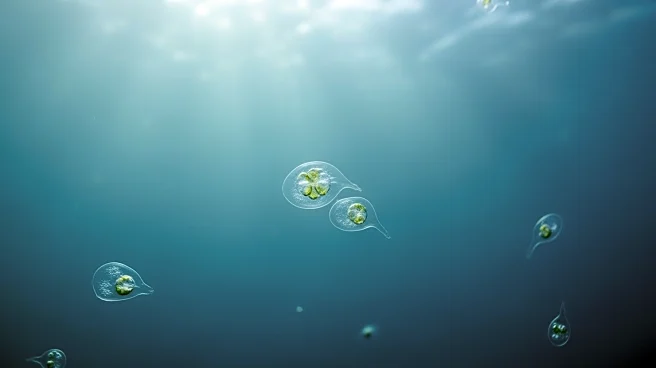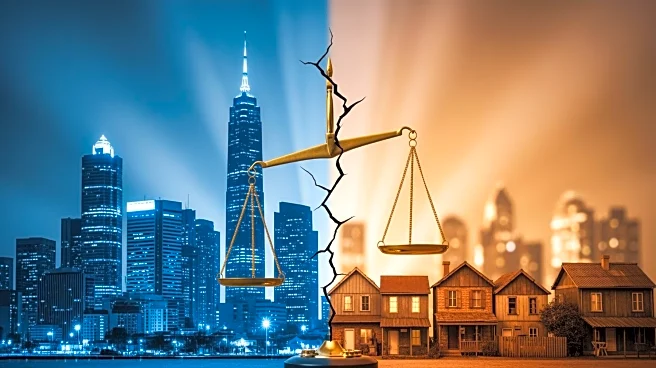What's Happening?
Ukraine's Deputy Prime Minister Taras Kachka has expressed confidence in Ukraine's path towards EU membership by 2028, despite opposition from Hungary. The European Council meeting is set to be crucial for Ukraine's accession talks, which Hungary's Prime Minister Viktor
Orban is attempting to block. Kachka also discussed the financial challenges Ukraine faces, with a significant portion of its budget reliant on foreign support. Ukraine is considering a 'reparations loan' funded by frozen Russian assets to cover its budgetary needs. The Belgian government has requested EU members to share risks associated with this loan, but no decision has been made yet.
Why It's Important?
Ukraine's potential EU membership represents a significant geopolitical shift, potentially strengthening ties between Ukraine and Western Europe. The financial strategies discussed, including the reparations loan, are crucial for Ukraine's economic stability amid ongoing conflict. Hungary's opposition highlights political tensions within the EU regarding Ukraine's accession. Successful negotiations could bolster Ukraine's international standing and economic resilience, while failure could exacerbate financial challenges and political isolation.
What's Next?
The upcoming EU Council meeting on December 19 will be pivotal in determining the progress of Ukraine's EU accession and the reparations loan. If an agreement is reached, Ukraine could proceed with accession talks and secure necessary funding. However, if Hungary continues to block negotiations, alternative financial support mechanisms may be needed to ensure Ukraine's economic stability.
Beyond the Headlines
The political dynamics within the EU regarding Ukraine's accession could influence broader EU policies and relationships with Eastern European countries. The reparations loan, if approved, could set a precedent for using frozen assets in international conflict resolution, raising ethical and legal questions about asset seizure and redistribution.














